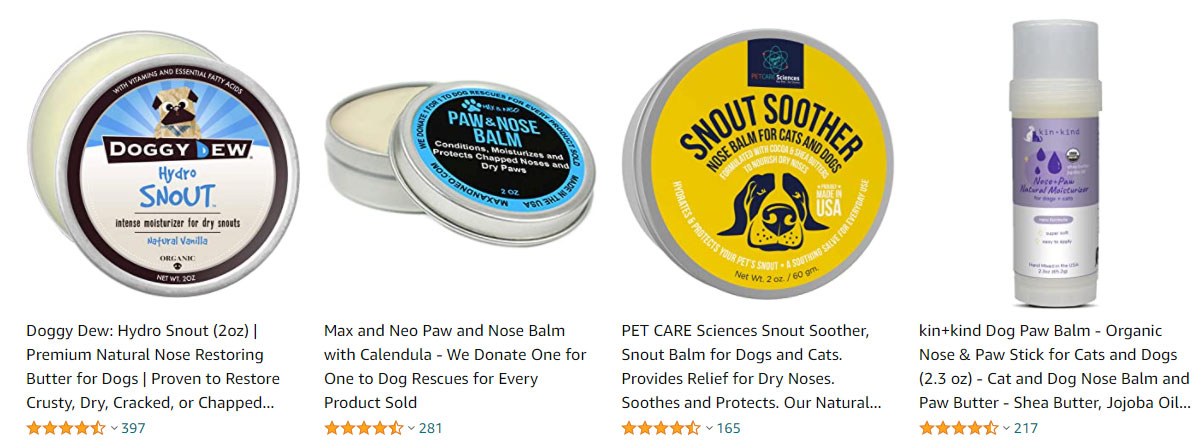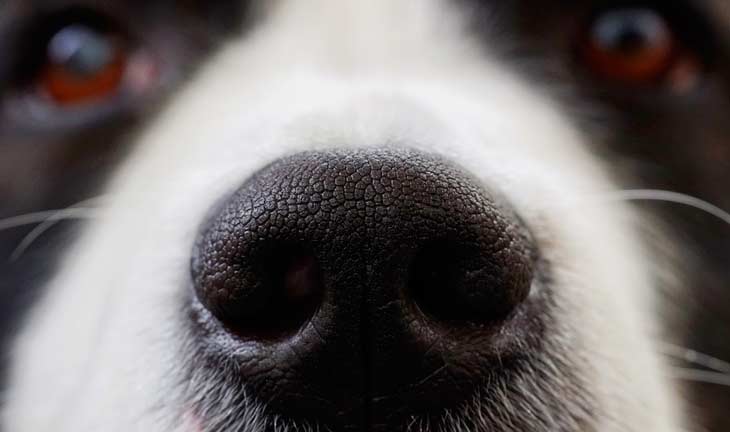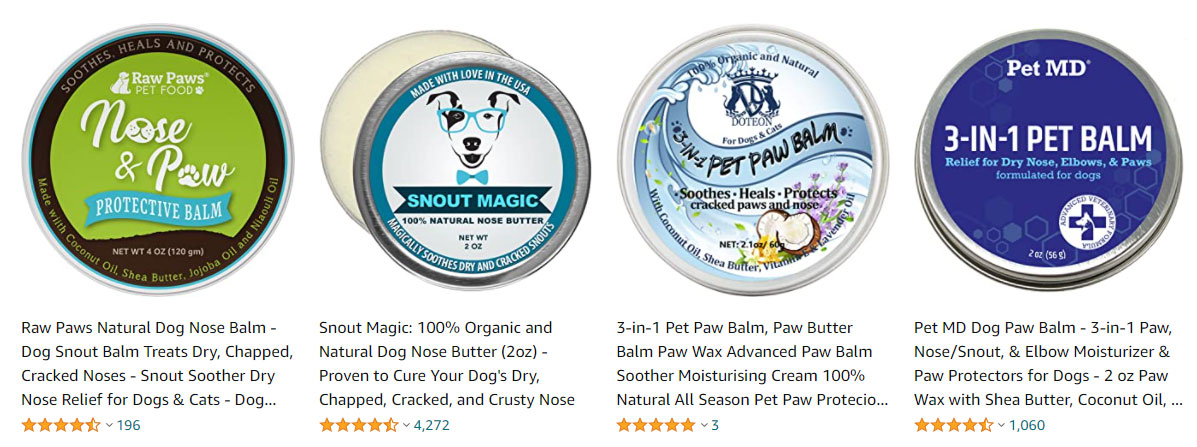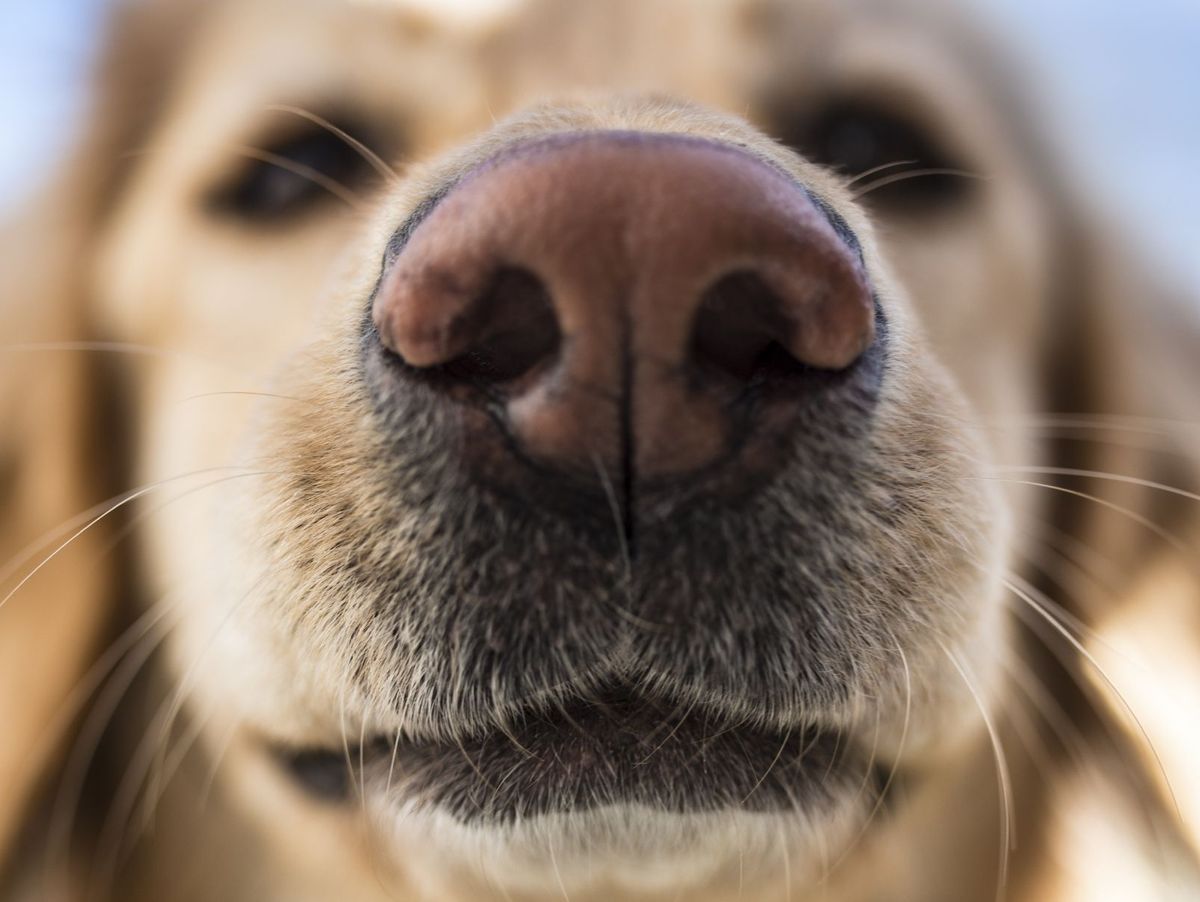Dry nose in dogs
A dog's nose, like a human's, is sensitive to its environment, and your dog may have a wet nose in the winter, sneeze when a cloud of dust is raised in front of him or have a dry nose in the summer.
If a dry nose is quite normal in dogs, there are certain situations that can worry the owner, especially when the animal starts to have scabs on the muzzle. Like a runny nose, a dry nose should be monitored to avoid late diagnosis of diseases and other health problems.
My dog has a dry nose, is he sick?
First of all, it is necessary to get rid of the old saying that a healthy dog has a wet and cold nose, and a sick dog has a hot and dry nose. There is some truth in this, but generalizing this saying is not in the dog's interest and makes the owner panic more than necessary.
A truffle can indeed be drier in case of dehydration, but it should not be concluded that your dog has a fever or that he is sick. In fact, a dog that has a wet and cold nose can just as easily have a fever and be sick, so the appearance of the nose should not be seen as a formal diagnostic tool.
Moreover, the environment of the dog influences the condition of his nose much more than his health, and a dog walking outside in winter will quickly have a cold nose, while a dog walking in the sun will probably have a warm nose without being sick in either case. If your dog has a dry nose, the first thing to do is to look at his general condition to see if there are any signs of illness.
Is your dog down? Has his behavior changed? Is he eating less or more? Does he have stomach, respiratory or nervous problems? If your pet is behaving perfectly normally, with bright eyes and a shiny coat, it is likely that he is in perfect health, dry or not.

My dog has a dry nose, is it too hot?
If your dog has a dry nose, it is indeed possible that he is dehydrated, especially if the ambient temperature is high. Offer him a drink regularly without forcing him, and don't forget to keep his water bowl clean and well filled.
If your dog is drinking more than normal (more than 100ml per kilo per day) and the weather is not especially hot, consult a veterinarian to make sure he is not suffering from diabetes mellitus or insipidus. If your dog has a dry nose but it is not hot, and he seems perfectly healthy and is not drinking more than usual, there is no need to worry.

My dog has a cracked nose, why?
If your dog has a cracked nose, look for the same symptom in his pads: he may be suffering from hyperkeratosis. Hyperkeratosis is a condition that causes the dermis of the dog's nose and pads to thicken and harden due to the excessive production of keratin.
If the skin becomes too hard and dry, it can crack and cause pain in your four-legged friend. Hyperkeratosis is a slowly evolving syndrome that can be caused by many acquired or inherited causes.
The parasitic pathology of Leishmaniasis can be the cause, as well as viral distemper, Zinc deficiency or Pemphigus foliaceae (autoimmune disease). In some cases, the cracks in this thick skin can cause bleeding, and the small open wounds resulting from this bleeding can become infected.
To treat a dog with hyperkeratosis, the veterinarian must find the condition that causes it and act directly on it. In addition, a local treatment can be applied to soften the skin, which improves the dog's comfort, prevents the development of wounds and reduces the risk of superinfection.
A dry nose in a dog is not necessarily a sign of poor health, especially when there are no other symptoms or changes in your dog's behavior.
Signs that should alert you are the appearance of cracks, chapping or bleeding, which may indicate hyperkeratosis. Note that cold weather can also cause chapping, and that outside temperatures always have a big impact on the appearance of your dog's nose.


